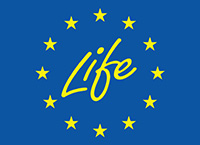Basic course about organic farming & advice: Registration is open!
The OrganicAdviceNetwork project will offer a new online basic course, designed to introduce participants to the core principles and practices of organic farming and advice. The course begins on 13 November 2025 and consists of 12 online sessions, each focusing on a key aspect of organic agriculture and advisory services.
The Basic Course serves as an entry point for those wishing to explore the professional field of organic advisory work. It provides participants with the necessary background knowledge to understand the role of organic advisors and the broader context of organic agriculture in Europe.
The course is particularly suited for:
- Students of agricultural sciences or related disciplines
- Recent graduates seeking orientation in the organic sector
- Early-career professionals and individuals interested in becoming organic farming advisors
Over the course of 12 sessions, participants will gain a foundational understanding of organic farming systems and the diverse topics relevant to advisory work in this field. Each session is led by experienced professionals and experts, offering both theoretical input and insights into the practical realities of organic advisory services. To support networking and peer learning, the course also includes dedicated online forums where participants can exchange ideas, ask questions, and jointly reflect on the course content.
The course will be offered on the new online learning and exchange platform OrganicAdviceNetwork.space and will be free of charge. Registration is now open!
The online basic course is part of the wider activities of the OrganicAdviceNetwork, a project aimed at strengthening advisory capacities and networks across Europe.


OrganicAdviceNetwork is funded by the European Union (Grant no. 101134850) and by the Swiss State Secretariat for Education, Research and Innovation (SERI) (Grant no. 23.0639, 101134850). Views and opinions expressed are however those of the author(s) only and do not necessarily reflect those of the European Union, European Research Executive Agency (REA) or Swiss State Secretariat for Education, Research and Innovation (SERI). Neither the European Union nor any other the granting authority can be held responsible for them.

